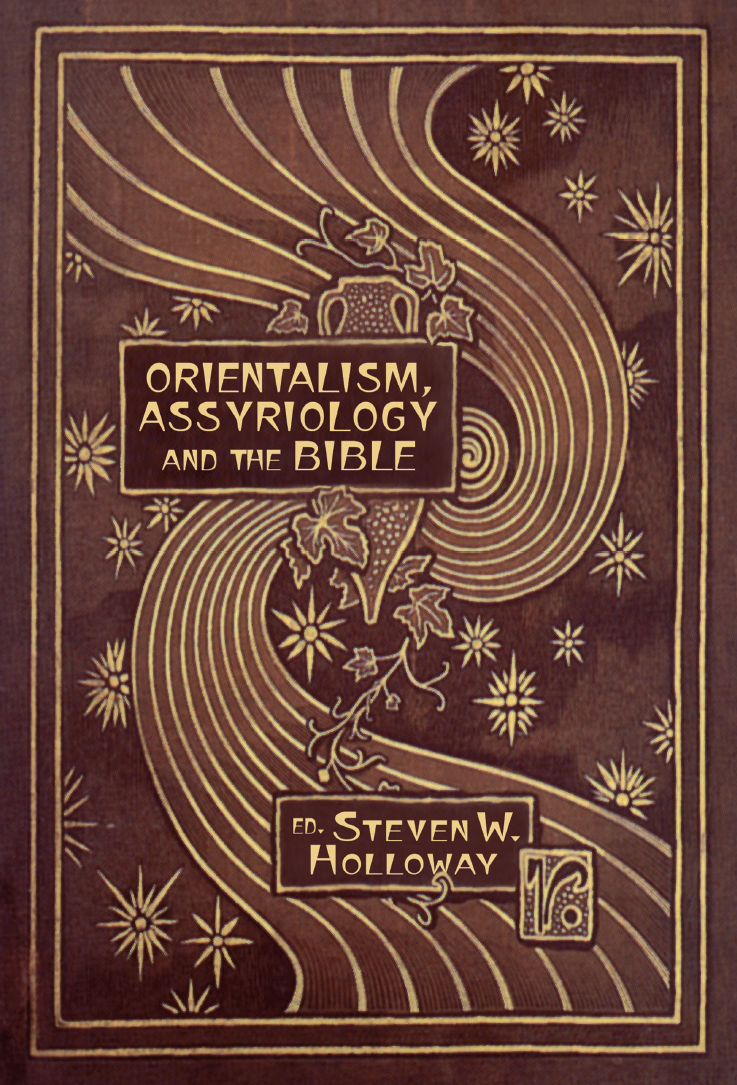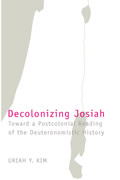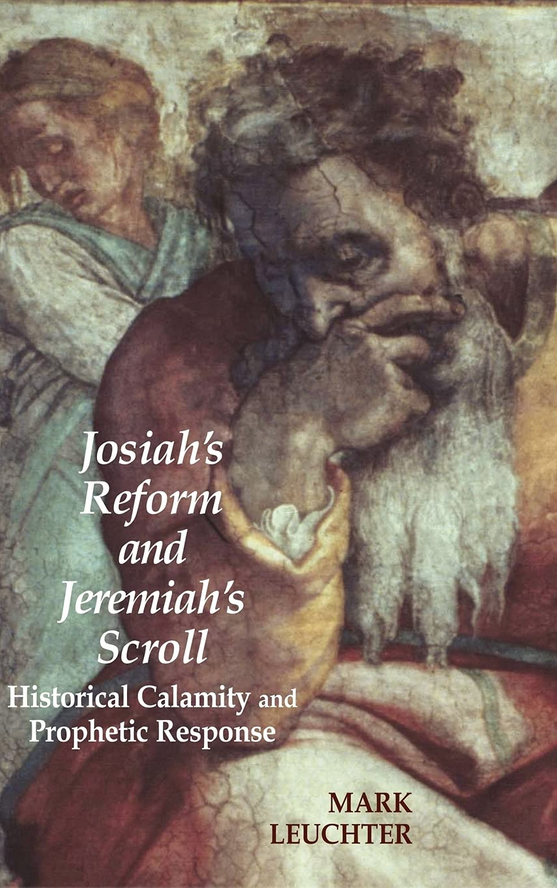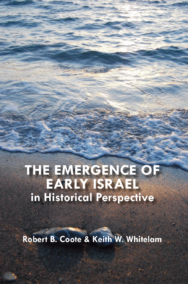Orientalism, Assyriology and the Bible
Published: Oct 2007
Price range: £22.50 through £60.00
'Orientalism' refers both to the academic study of the Orient and to Western scholarship that clings to stock images of the timeless East and oriental despotism. This landmark collection of essays, the first in its field, is written by seasoned art historians, Assyriologists and biblical specialists; it is organized under four rubrics:
1. Intellectual and Disciplinary Histories identifies waymarks in the rise of Assyriology in America, shifting images of ancient Assyria in their cultural context, Smithsonian Institution exhibits of 'biblical antiquities' at the world's fairs of 1893 and 1895, the rise of Egyptology in the nineteenth century, Mari scholarship and its impact on biblical studies, and the ancient Near Eastern text anthology as genre (Foster, Frahm, Holloway Reid, Younger).
2. Visual Perspectives suggests itself as a corrective to the academic habit of conjuring a 'texted Orient'. Here are contributions that describe Assyrianizing engravings in the famous Dalziels' Bible Gallery, the reception of ancient Assyria in nineteenth-century England versus France, and artwork for twentieth-century American histories of Israel (Bohrer, Esposito, Long).
3. Of Harems and Heroines explores gender issues in the context of the figure of Semiramis and the idea of the harem in biblical research and Assyriology (Asher-Greve, Solvang).
4. Assyriology and the Bible offers essays that focus on specific figures (Josiah), texts (Genesis 28.10-22, the Uruk Prophecy), or periods (Persian period in biblical historiography) (Grabbe, Handy, Hurowitz, Scurlock).
The volume includes a Bibliography of some 1000 items, an important resource.
Orientalism, Assyriology and the Bible
Price range: £22.50 through £60.00
'Orientalism' refers both to the academic study of the Orient and to Western scholarship that clings to stock images of the timeless East and oriental despotism. This landmark collection of essays, the first in its field, is written by seasoned art historians, Assyriologists and biblical specialists; it is organized under four rubrics:
1. Intellectual and Disciplinary Histories identifies waymarks in the rise of Assyriology in America, shifting images of ancient Assyria in their cultural context, Smithsonian Institution exhibits of 'biblical antiquities' at the world's fairs of 1893 and 1895, the rise of Egyptology in the nineteenth century, Mari scholarship and its impact on biblical studies, and the ancient Near Eastern text anthology as genre (Foster, Frahm, Holloway Reid, Younger).
2. Visual Perspectives suggests itself as a corrective to the academic habit of conjuring a 'texted Orient'. Here are contributions that describe Assyrianizing engravings in the famous Dalziels' Bible Gallery, the reception of ancient Assyria in nineteenth-century England versus France, and artwork for twentieth-century American histories of Israel (Bohrer, Esposito, Long).
3. Of Harems and Heroines explores gender issues in the context of the figure of Semiramis and the idea of the harem in biblical research and Assyriology (Asher-Greve, Solvang).
4. Assyriology and the Bible offers essays that focus on specific figures (Josiah), texts (Genesis 28.10-22, the Uruk Prophecy), or periods (Persian period in biblical historiography) (Grabbe, Handy, Hurowitz, Scurlock).
The volume includes a Bibliography of some 1000 items, an important resource.
Decolonizing Josiah: Toward a Postcolonial Reading of the Deuteronomistic History
Published: Jun 2006
Price range: £18.95 through £50.00
In the prevailing view, the Deuteronomistic History is the first and archetypical Western history, describing the creation of an Israelite state in Palestine as the origin of civilization in the region, a hegemonic culture rendering the other inhabitants of the country homeless in their own land. That view of Davidic domination over greater Palestine, fashioned under Josiah, has been given a modern nationalist reading by contemporary scholars, a reading consistent with the vast array of covert cultural confirmations of Euro-American imperial power.
How is it possible, Kim asks, given the all-encompassing sway of the colonialist reading of the Bible, to understand Josiah in other than colonialist terms? His answer: the historical imagination, making unfettered use of the tools of the critical historian, must be informed by the experience of those who have lived as the other, as the colonized, as not at home in their own land —which means, for Kim, the experience of being Asian American. The intellectual use of this experience creates his distinctive postcolonial perspective, as he draws attention to the connection between Western imperialism and the production of Western knowledge. Specifically, the author reads the story of Josiah intercontextually with the experience of Asian Americans from the space of liminality.
This is a passionate postcolonial reading of Josiah that, on one hand, critiques the failure of biblical studies to come to terms with its colonialist legacy and, on the other hand, connects the world of biblical studies to the world at large.
Decolonizing Josiah: Toward a Postcolonial Reading of the Deuteronomistic History
Price range: £18.95 through £50.00
In the prevailing view, the Deuteronomistic History is the first and archetypical Western history, describing the creation of an Israelite state in Palestine as the origin of civilization in the region, a hegemonic culture rendering the other inhabitants of the country homeless in their own land. That view of Davidic domination over greater Palestine, fashioned under Josiah, has been given a modern nationalist reading by contemporary scholars, a reading consistent with the vast array of covert cultural confirmations of Euro-American imperial power.
How is it possible, Kim asks, given the all-encompassing sway of the colonialist reading of the Bible, to understand Josiah in other than colonialist terms? His answer: the historical imagination, making unfettered use of the tools of the critical historian, must be informed by the experience of those who have lived as the other, as the colonized, as not at home in their own land —which means, for Kim, the experience of being Asian American. The intellectual use of this experience creates his distinctive postcolonial perspective, as he draws attention to the connection between Western imperialism and the production of Western knowledge. Specifically, the author reads the story of Josiah intercontextually with the experience of Asian Americans from the space of liminality.
This is a passionate postcolonial reading of Josiah that, on one hand, critiques the failure of biblical studies to come to terms with its colonialist legacy and, on the other hand, connects the world of biblical studies to the world at large.
Josiah’s Reform and Jeremiah’s Scroll: Historical Calamity and Prophetic Response
Published: Jan 2006
£50.00
This exciting new study of the prophet Jeremiah attributes to him a pivotal significance in the historical period of Josiah's reign.
He was, so Leuchter argues, one of the central agents of Josiah's propaganda machine and was intimately involved with the king's political agenda. Jeremiah, himself originally a member of the scribal school that composed the Deuteronomistic literature, encouraged the Shilonites of Anathoth to become active in Josiah's programme in the North following the waning of Assyrian power. Dismayed by the Shilonites' rejection of him and Josiah, and by the king's death at Megiddo, Jeremiah came to a radically new understanding of the divine purpose, encapsulated in the famous Temple sermon of Jeremiah 7 and evidenced in the prophet's debates with the political establishment in Jerusalem in the years that followed.
In his thoroughgoing historical reconstruction, Leuchter outlines a very specific sequence of events that took their rise from the Shilonite rejection of Deuteronomic policy, and on that basis carefully demarcates the texts that would have been included in Jeremiah's first scroll (the Urrolle ). Leuchter's monograph will make an important contribution to the study of the history and the literature of the late seventh century BCE.
Josiah’s Reform and Jeremiah’s Scroll: Historical Calamity and Prophetic Response
£50.00
This exciting new study of the prophet Jeremiah attributes to him a pivotal significance in the historical period of Josiah's reign.
He was, so Leuchter argues, one of the central agents of Josiah's propaganda machine and was intimately involved with the king's political agenda. Jeremiah, himself originally a member of the scribal school that composed the Deuteronomistic literature, encouraged the Shilonites of Anathoth to become active in Josiah's programme in the North following the waning of Assyrian power. Dismayed by the Shilonites' rejection of him and Josiah, and by the king's death at Megiddo, Jeremiah came to a radically new understanding of the divine purpose, encapsulated in the famous Temple sermon of Jeremiah 7 and evidenced in the prophet's debates with the political establishment in Jerusalem in the years that followed.
In his thoroughgoing historical reconstruction, Leuchter outlines a very specific sequence of events that took their rise from the Shilonite rejection of Deuteronomic policy, and on that basis carefully demarcates the texts that would have been included in Jeremiah's first scroll (the Urrolle ). Leuchter's monograph will make an important contribution to the study of the history and the literature of the late seventh century BCE.





